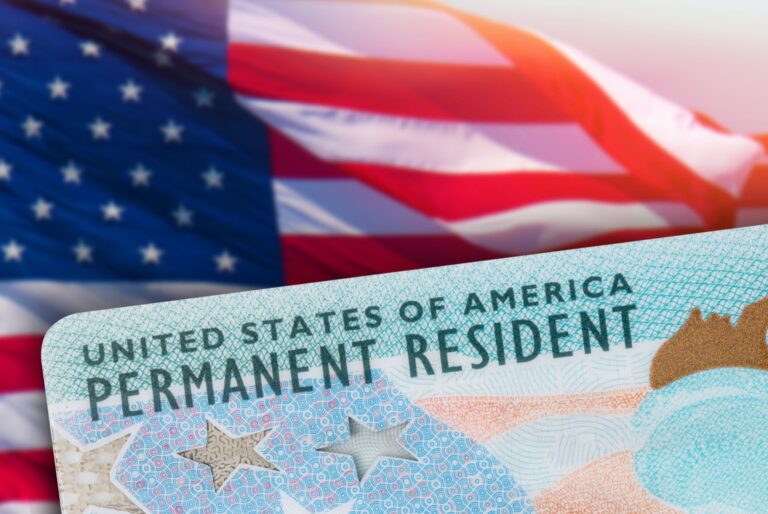If your immigration case has been denied, you need to consider proceeding with a USCIS denial appeal in California. As overwhelming as this can feel, don’t lose hope. Just because your immigration case has been denied, this does not mean this is the end of the immigration process.
At The Berdugo Law Firm, APC, we are dedicated to providing our clients with the assistance they need as they appeal their immigration cases with the USCIS. Keep reading to find out how to file a USCIS denial appeal in California and how the motion to reopen a USCIS case process works.
Top Reasons USCIS Denies Applications
You may be wondering what to do after a USCIS denial and whether or not this is the end of the line. The good news is that even if you have received an immigration denial, this does not mean that this decision is irreversible. There are several options available that allow you to appeal to have your immigration case reevaluated.
However, before we dive into your appeal options and how this process works, why does the USCIS deny immigration cases? Here are some of the most common reasons for green card denials:
- You didn’t provide enough evidence to support your case.
- There were significant inconsistencies in your application.
- You did not meet the eligibility requirements for obtaining a green card.
- The application wasn’t filled out correctly.
- You missed important appointments or biometrics.
- You were deemed to be inadmissible, or you have a criminal history.
- You missed certain filing deadlines.
As you can see, there are many small errors that can result in your application being denied. Because of this, it is strongly recommended that you hire a California immigration lawyer to represent you and help with the application process. They will have a better understanding of how this works and can ensure you avoid many of these issues when filing.
Appeal Options After a USCIS Denial
Even if your immigration application has been denied, you have the right to appeal this decision in a few different ways. Keep in mind that the best appeal option will depend on your specific situation, such as the immigration avenue you are taking and the reason for the denial.
One of the first options you should look into is filing a green card application appeal with the Administrative Appeals Office. They will review the denial and can reverse it, especially if the denial was due to a simple mistake. For more complex denial cases, you may need to submit additional evidence and documentation to support your appeal.
Other options for appealing a denial are to file a motion to reopen or a motion to reconsider. A motion to reopen allows you to appeal and provide additional documentation if the denial was due to insufficient evidence. On the other hand, you can file a motion to reconsider if you believe the denial was not fair.
For both a motion to reopen and a motion to reconsider, you have 30 days from the day that you received your denial to file your appeal. The same filing deadline applies for AAO appeals.
In some instances, it may be best to simply re-file your original immigration application if none of these appeal options are suitable.
Tips for a Strong Appeal
It is no secret that receiving an immigration denial can be devastating. However, by taking the correct steps, you can file a USCIS denial appeal in California to have this decision re-examined and potentially reversed. Here are some tips to help you create a strong appeal that has the best chance of getting the desired result:
- Hire an attorney: The number one thing you need to do is to hire an immigration lawyer for a denied USCIS application. They will be familiar with how this process works and can help you choose the best appeal option.
- Provide additional evidence: For any type of appeal, you have the option of including supporting evidence. You should always take advantage of this and include any evidence that you think will support your immigration case or prove that the denial was incorrect.
- Argue your case: Along with additional evidence, you will usually have the option of writing a legal argument. This is the perfect opportunity to argue your side of the case, whether you believe the decision was unfair or you need to correct any discrepancies in your original application.
FAQ Section:
Can I appeal a USCIS denial myself?
Although you have the right to appeal a USCIS denial on your own, it is strongly recommended that you hire an attorney to help you with this, as it can be a very complex legal process.
What’s the difference between an AAO appeal and a motion to reopen?
Although both are good options, an AAO appeal and motion to reopen our two very different avenues. An AAO appeal is when the AAO reopens or reconsiders its own denial decisions. Whereas, a motion to reopen requests that the denial be evaluated by the authority that handled the latest decision while taking into account additional evidence.
How long does it take to get a decision on an appeal?
The average appeal process timeline is about six months for the majority of cases. However, this can fluctuate quite dramatically, ranging between a month or as long as a year.
Will a denial affect my future immigration applications?
Yes, depending on the circumstances around the denial, there is a chance that it can impact your future immigration options.
Contact an Immigration Attorney at The Berdugo Law Firm
If your immigration case has been denied, you will need to know how to appeal a green card denial in California. The most important thing to remember is that there are several options available to you, so it is very likely that you can have this decision reversed.
At The Berdugo Law Firm, we are committed to providing our clients with the legal guidance they need as they navigate USCIS application denials and appeal timelines. Contact us today at 323-642-9933 to speak with an immigration attorney about your case.


